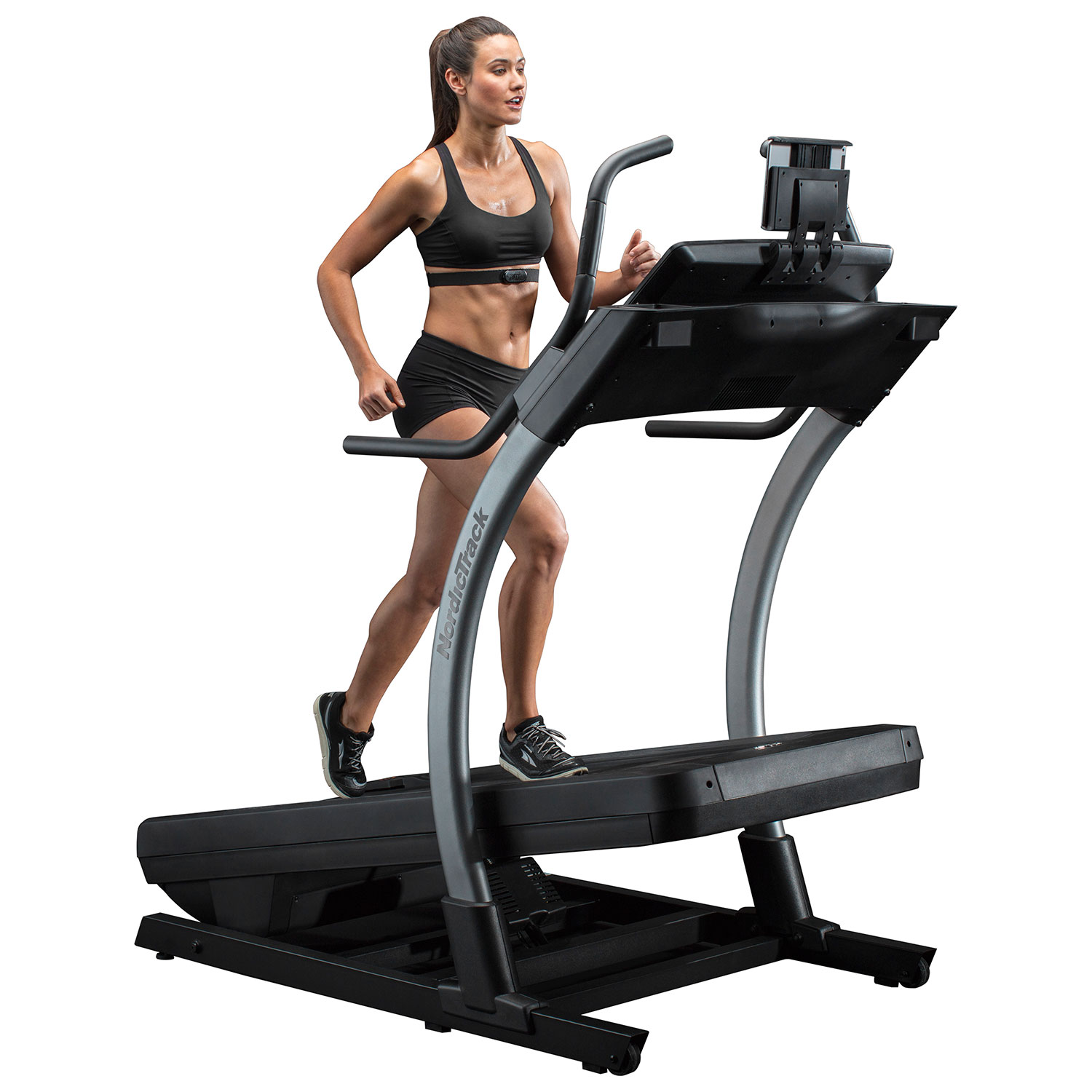
If you work out at a gym, and step onto a stationary bicycle, elliptical, or other piece of cardio-based equipment, what’s one of the most important bits of data you want to see, beyond the elapsed time? Probably your heart rate, which is usually displayed prominently on the machine’s screen, in real-time. Heart rate has become one of the easiest types of data to track, record, and share with health professional thanks to the growing number of heart specific connect health devices available. Why is your heart rate so important?
What is your heart rate?
Your heart rate, or pulse rate, is the number of times your heart beats per minute, known as BPM. The best spots to measure your heart rate, according to the American Heart Association (AHA), are via your wrist, inside of your elbow, the side of your neck, or the top of your foot. A simple way to determine your current heart rate is to place your fingers on one of these areas until you find the heartbeat, then count them for a total of 60 seconds. The final number, your BPM, signifies your current heart rate.
 The AHA says that a normal resting heart rate, which describes your heart rate when you aren’t engaged in physical activity and your heart is pumping the lowest amount of blood, can be anywhere from 60-100 BPM. But this varies, and can be impacted by a number of factors. For example, athletic folks might have a lower resting heart rate because their heart doesn’t need to work as hard to pump blood when they aren’t being active. Medications can lower or raise your heart rate as well, as can factors like weather, stress, and emotions.
The AHA says that a normal resting heart rate, which describes your heart rate when you aren’t engaged in physical activity and your heart is pumping the lowest amount of blood, can be anywhere from 60-100 BPM. But this varies, and can be impacted by a number of factors. For example, athletic folks might have a lower resting heart rate because their heart doesn’t need to work as hard to pump blood when they aren’t being active. Medications can lower or raise your heart rate as well, as can factors like weather, stress, and emotions.
Why measure your heart rate?
So why measure your heart rate, beyond just curiosity? Considering your heart pumps blood throughout your body, and is literally necessary for you to live, it’s an important organ. And your heart rate can tell you a lot about your health and well-being. It’s worth noting, before we  delve deeper, however, that heart rate monitors are not certified medical devices. While they can provide useful data, they should never be used in place of an actual medical professional.
delve deeper, however, that heart rate monitors are not certified medical devices. While they can provide useful data, they should never be used in place of an actual medical professional.
Heart rate helps improve your workouts
When working out, the idea is to reach a certain target heart rate – a zone that represents optimal exercise levels. It is typically based on your age, though other factors can come into play. Keeping track of your heart rate continuously while working out out can help ensure that you are working hard enough, but also conversely that you don’t overexert yourself.
Your target heart rate should be about 50-70% of your maximum heart rate for moderate exercise intensity, or 70-85% for vigorous intensity. To determine your maximum heart rate, a simple calculation is to subtract your age from 220. I’m 39, which means my maximum heart  rate is 181. So in order to engage in moderate exercise, I should aim to reach a target heartrate of at least 90. For vigorous exercise, I should aim for a heart rate of 126.
rate is 181. So in order to engage in moderate exercise, I should aim to reach a target heartrate of at least 90. For vigorous exercise, I should aim for a heart rate of 126.
Heart rate can help you monitor or detect health concerns
Many of the latest devices for monitoring heart rate, namely wrist-worn activity trackers like the Fitbit Versa, Fitbit Charge 3, Apple Watches—and the new Apple Series 5 watch with ECG (approved by Health Canada)—or newer generation smartwatches, offer continuous heart rate tracking, and keep a log of your heart history in the associated app.
Tracking and recording your own health information and viewing progress, trends or patterns on your mobile devices is one of the huge new benefits of connected health technology. Presenting this data to a medical professional on your next visit may augment their diagnostic skill, allowing them to detect anomalies that might be cause for concern. Additionally, while using a connected health device, if you notice a spike in your heart rate, without any obvious factors that might have contributed to it, you might want to take note, or contact your doctor.
 People with known heart issues can show their doctor a detailed history of their resting heart rate over the last week, month, or even longer, to provide a more detailed picture, and potentially detect patterns. In some cases, heart rate data can be sent directly to the doctor, who can monitor in real-time as well. (This could very well represent the future of medical care.)
People with known heart issues can show their doctor a detailed history of their resting heart rate over the last week, month, or even longer, to provide a more detailed picture, and potentially detect patterns. In some cases, heart rate data can be sent directly to the doctor, who can monitor in real-time as well. (This could very well represent the future of medical care.)
Heart rate can motivate you
Heart rate provides a useful visual window into what’s going on in your body, and it can be a good motivator. If you’re feeling like slowing down, for example, but see that you’re nowhere near your target heart rate, you’ll be motivated to amp it up and get to that desired zone to ensure an optimal workout.
Conversely, seeing your heart rate rise due to factors like stress, or certain medications, can  urge you to calm down, and seek help if needed.
urge you to calm down, and seek help if needed.
Measuring heart rate works in tandem with other wellbeing features
Heart rate works together with other features of the latest devices to provide an overall picture of your health and well-being. The Fitbit app, for example, gives you an overall cardiovascular score based your activity levels, sleep, and heart rate.
After a workout, you can also see how your heart rate relates to things like time, elevation, and speed, and use that information to make adjustments. For example, do you want to try and reach your target heart rate faster next time? Or are you feeling winded and think that you might have gone too fast, too quickly, versus raising your heart rate more gradually?
 How to measure your heart rate
How to measure your heart rate
There are a number of tech devices that make it easy to measure your heart rate continuously.
Chest straps
 Chest straps (like the Qardio one shown here) have been around for quite some time. While they aren’t as unobtrusive and easy to wear daily as smartwatches and activity trackers are for continuous tracking, they are considered to be one of the more accurate ways to measure heart rate. But they’re more conducive to wearing only while working out. Made of plastic, elastic, or fabric, they have embedded or attached sensors that detect electrical activity of the heart as it beats, and transmits that data to a receiver as BPM via ANT+ or Bluetooth. The receiver could be a companion watch, wearable, or an app on your mobile phone. Given the massive growth in activity trackers and smartwatches with heart rate monitoring, and their convenience and general reliability, chest strap-based monitors aren’t as widely used as they once were.
Chest straps (like the Qardio one shown here) have been around for quite some time. While they aren’t as unobtrusive and easy to wear daily as smartwatches and activity trackers are for continuous tracking, they are considered to be one of the more accurate ways to measure heart rate. But they’re more conducive to wearing only while working out. Made of plastic, elastic, or fabric, they have embedded or attached sensors that detect electrical activity of the heart as it beats, and transmits that data to a receiver as BPM via ANT+ or Bluetooth. The receiver could be a companion watch, wearable, or an app on your mobile phone. Given the massive growth in activity trackers and smartwatches with heart rate monitoring, and their convenience and general reliability, chest strap-based monitors aren’t as widely used as they once were.
Wrist-worn trackers
These include activity trackers, fitness bands, and smartwatches that typically use LED  lights that shine on your wrist or arm to detect blood flow and changes in blood volume via blood vessels, and count your BPM to present a number either when prompted or, more commonly nowadays, continuously. The less light that is reflected back, the higher the blood volume. The data can be displayed on the device’s screen (if it has one) and/or through a companion app. The latest device of this type is the Apple Series 5 watch which includes an ECG (electrical heart sensor) approved by Health Canada.
lights that shine on your wrist or arm to detect blood flow and changes in blood volume via blood vessels, and count your BPM to present a number either when prompted or, more commonly nowadays, continuously. The less light that is reflected back, the higher the blood volume. The data can be displayed on the device’s screen (if it has one) and/or through a companion app. The latest device of this type is the Apple Series 5 watch which includes an ECG (electrical heart sensor) approved by Health Canada.
Other tech devices
Other tech devices that can be used to track your heart rate include smart scales that grab the data from your feet, straps that fit into clothing like shirts or sports bras, and, of course, large fitness equipment, like exercise bikes, ellipticals, rowing machines, and treadmills. There are also devices like pulse oximeters that can measure you heart rate as necessary via your finger.
Bottom line

Measuring your heart rate isn’t just about fitness, nor is it only useful for fitness enthusiasts. Keeping continuous track of your heart rate makes sense for anyone, of any age and fitness level. And it is easier than ever before to collect, record, and share heart data thanks to new connected health technology. Whether heart rate monitoring is used to optimize workouts and help you reach peak performance, aid you in better monitoring your health at home, detect instances that might raise red flags, or simply help you be more in the know about your heart health and factors that effect it, it’s a no-brainer.
Check out lots of heart rate monitoring options at Best Buy Online.




Love wearable tech to keep track of goals and sleep and keep in touch.
Comments are closed.